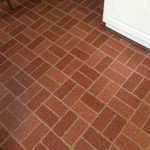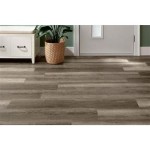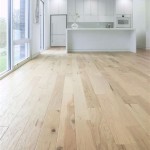Installing Pine Plank Flooring: A Comprehensive Guide to Flawless Results
Transforming your home with the rustic charm of pine plank flooring is a rewarding endeavor that requires meticulous preparation and precision. By adhering to the following essential aspects, you can ensure a flawless installation that will enhance the beauty and value of your space for years to come.
1. Subfloor Preparation
A solid and level subfloor is crucial for a successful flooring installation. Begin by inspecting the subfloor for any irregularities or damage. Repair or replace any damaged areas. Ensure that the subfloor is level using a spirit level and make any necessary adjustments, such as shimming or planing.
2. Moisture Control
Wood flooring is susceptible to moisture damage. To prevent warping or buckling, install a vapor barrier or moisture barrier onto the subfloor. This barrier will prevent moisture from seeping up from the ground or below the flooring.
3. Install the Underlayment
An underlayment provides additional cushioning, insulation, and soundproofing between the subfloor and the plank flooring. Choose an underlayment specifically designed for wood flooring and install it according to the manufacturer's instructions.
4. Acclimation
Before installing the pine planks, acclimate them to the room's environment for several days. This allows the wood to adjust to the temperature and humidity levels, reducing the risk of expansion or contraction after installation.
5. Starting Point
Determine the starting point for your flooring installation. Typically, installation begins in a corner of the room and progresses outward. Mark the starting point clearly with a chalk line.
6. Installation Technique
Pine planks can be installed using either nail gun or glue-down methods. For nail gun installations, use flooring nails and a nailer specifically designed for wood flooring. For glue-down installations, apply adhesive to the subfloor and press the planks into place.
7. Expansion Gap
Leave a small expansion gap (1/4" to 1/2") around the perimeter of the room to allow for natural expansion and contraction of the flooring.
8. Finishing Touches
Once the flooring is installed, trim the edges around doors, walls, and other obstacles. Sand and refinish the flooring to achieve the desired look and finish. Consider applying a penetrating oil or sealant to protect the flooring from wear and moisture.
9. Maintenance
To prolong the lifespan of your pine plank flooring, sweep or vacuum regularly to remove dirt and debris. Use a damp mop to clean the flooring as needed. Avoid using excessive amounts of water or harsh cleaning chemicals.
By following these essential aspects, you can achieve a professional-grade pine plank flooring installation that will enhance the beauty of your home for many years to come.

Diy Wide Plank Pine Floors Part 1 Installation The Roots Of Home

Diy Wide Plank Pine Floors Part 1 Installation The Roots Of Home

Installing Pine Tounge And Groove Flooring
Diy Wide Plank Pine Floors Part 1 Installation The Roots Of Home

How To Install Pine Floors Diy Family Handyman

How To Install Beautiful Wood Floors Using Basic Unfinished Lumber The Creek Line House

Installing Wide Plank Pine Flooring Newlywoodwards

Installing A Southern Pine Floor

Installing Wide Plank Pine Flooring Newlywoodwards

Diy Wide Plank Pine Floors Part 2 Finishing The Roots Of Home
Related Posts








